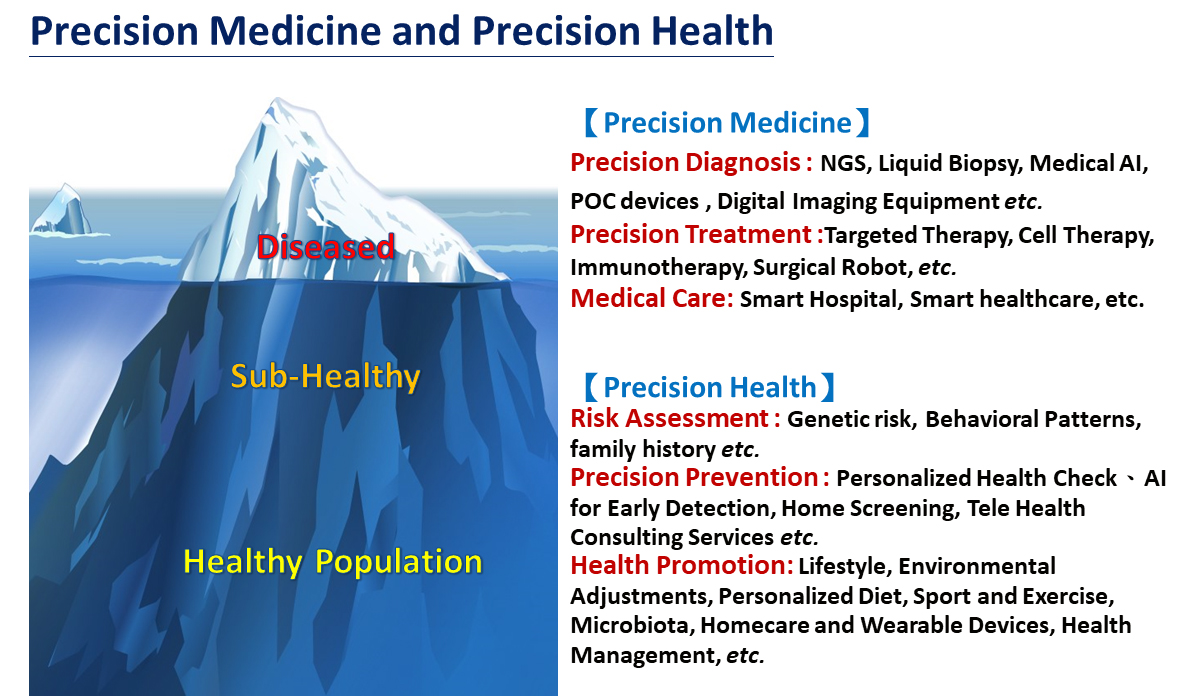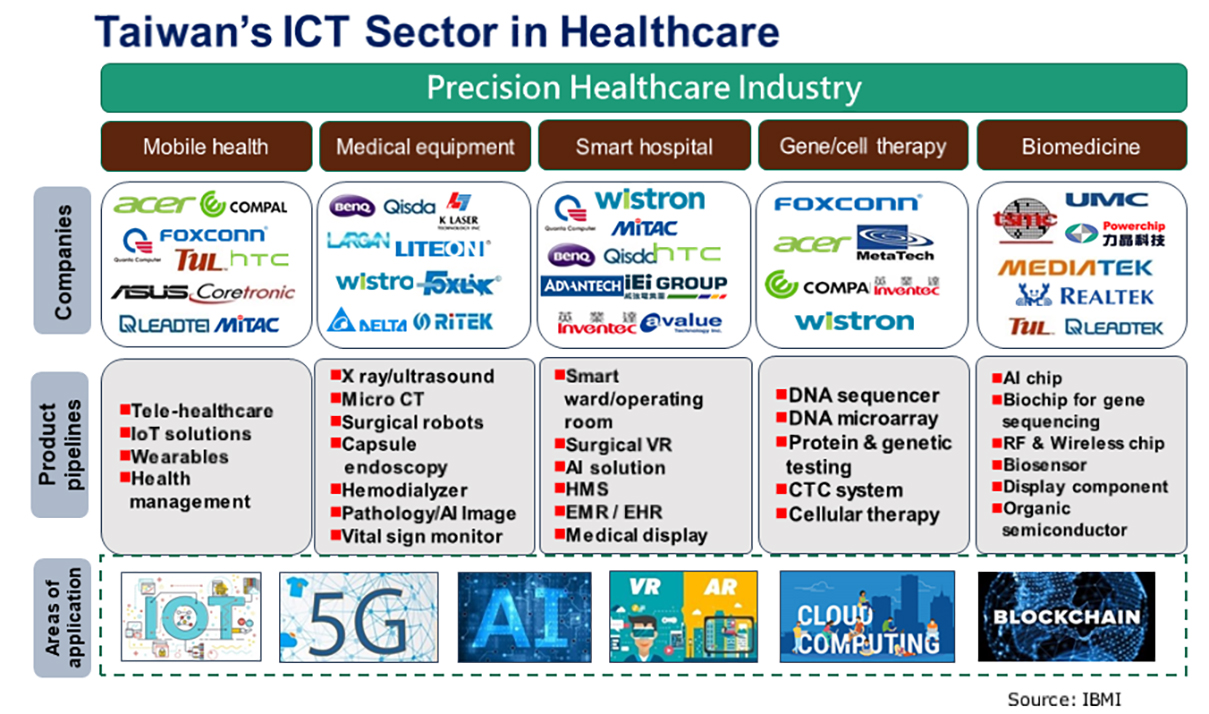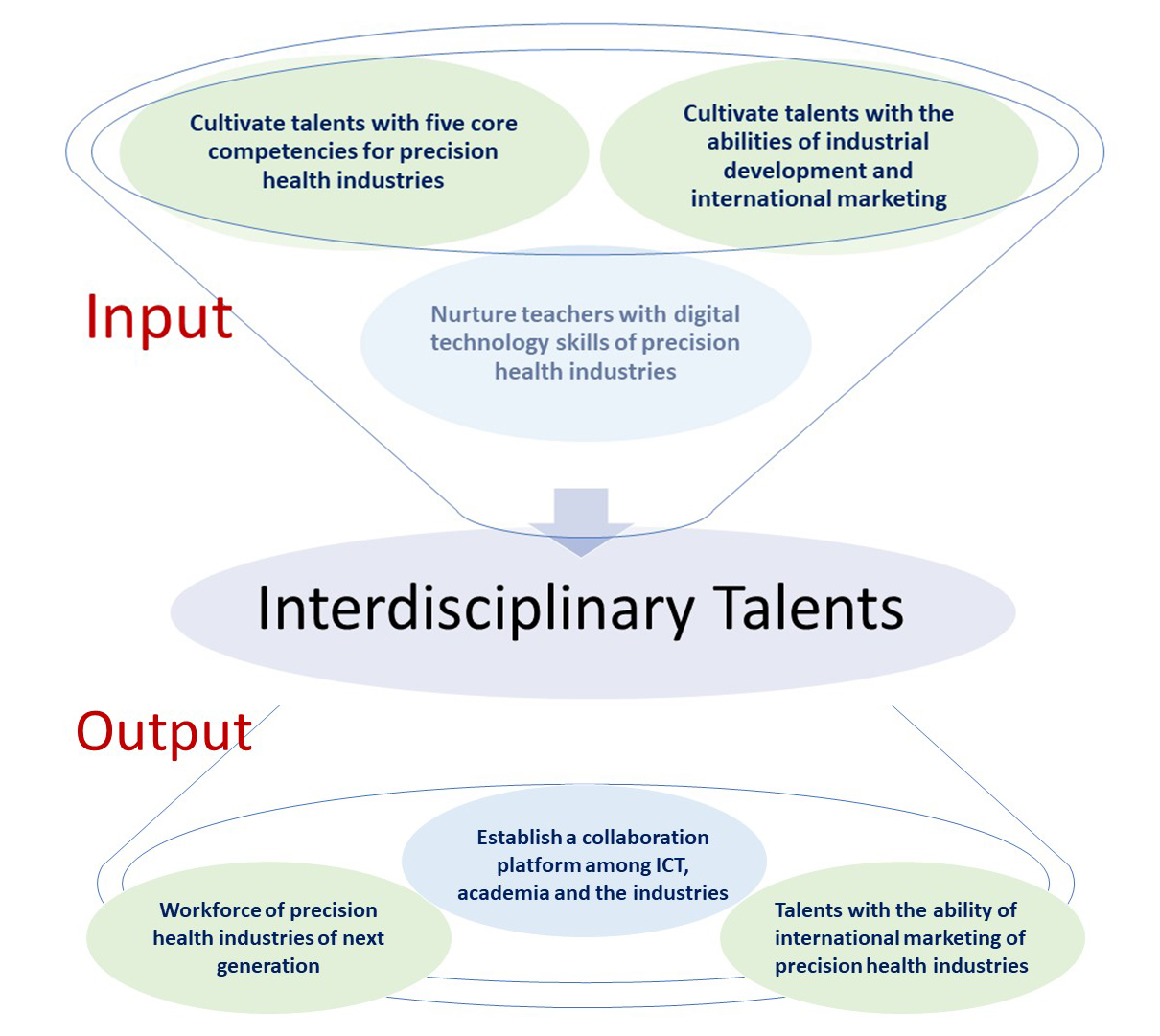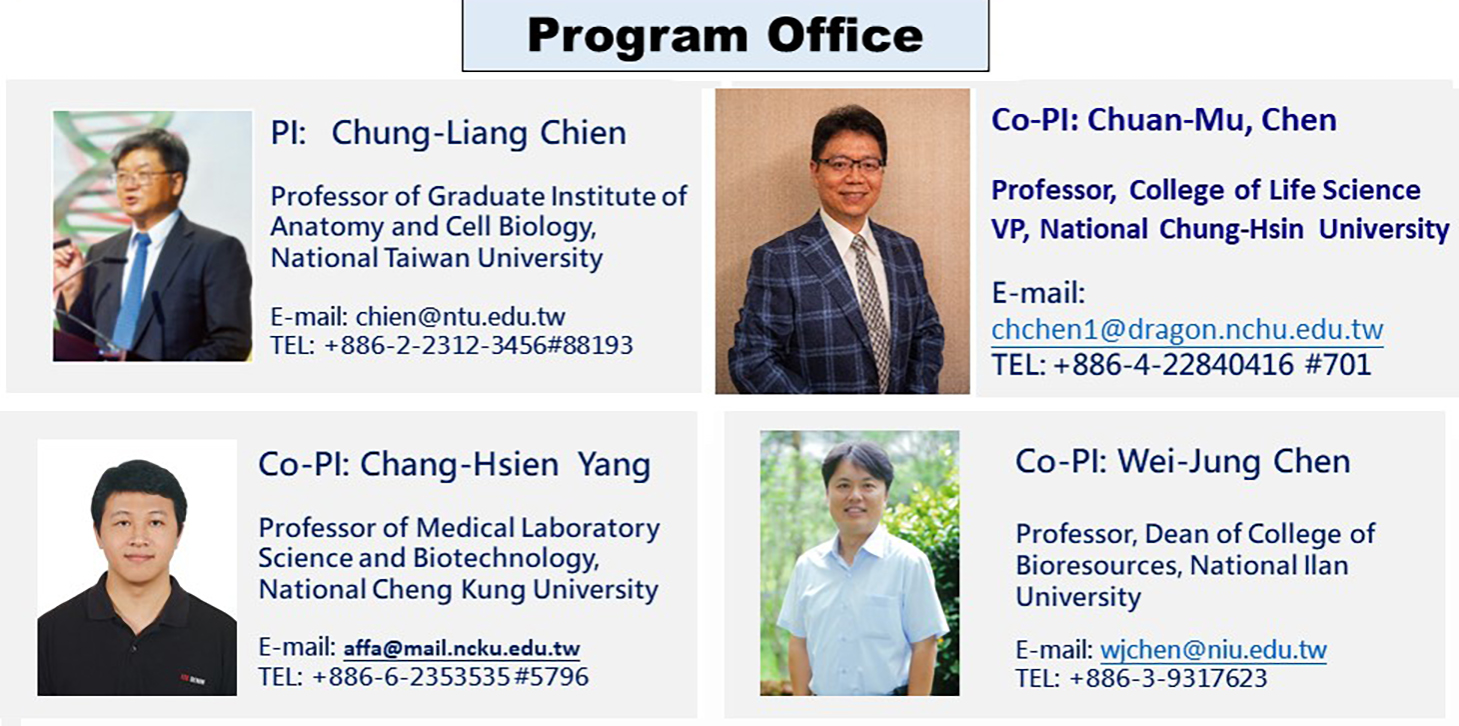
 |
 |
 |
 |
 |
 |
 |
 |
 |
 |
Background:
Taiwan has established a strong infrastructure foundation for Information and
Communication Technologies (ICT), especially for Artificial Intelligence (AI),
5th Generation Mobile Networks (5G), Internet of Things (IoT), and Blockchain
technology. In consideration of public health and wellbeing, Taiwan government
employs big data to formulate precision health industries for all ages, aiming
at four different health states inclusive of health, suboptimal
health, disease, and disability.
By means of undergoing a procedure whereby a provision in law is required to
address crucial issues, the goal is to develop the strategies and the business
models for precision prevention, diagnosis, treatment, and care as well as to
stimulate the progress of related industries. It is expected that the strengths
of ICT can produce added value for health industries and bring benefits to
future health medicine regardless of the development of screenings and early
detections, big data in health, image and genetic information processing,
decision aid for doctors, health monitoring management systems, and smart
wearable devices. However, the world is facing an unprecedented challenge with
aging populations, food security, environmental changes, and sustainable
development within the next twenty years. Consequently, it is urgent to
advance diversified agriculture. The approaches that Taiwan utilizes ICT to
integrate different disciplines and digital data are fundamental to break new
ground for precision medicine and diversified agriculture.
National economic development depends on talented people equipped with
professional research and development abilities as well as applied
interdisciplinary perspectives. Therefore, it is imperative to design
cultivation programs for interdisciplinary talents based on the previous
training programs and working with innovation industries. Accordingly, the
higher education institutes in Taiwan will continue to nurture talents capable
of interdisciplinary integration and international competitiveness.

Figure 1. Precision Medicine and Precision Health (2020 BTC Report)

Figure 2. Taiwan ICT and Healthcare industries (2020 BTC report, data from IBMI)
Program Description:
From 2020 onwards, based on the
Biomedical Industry Innovation
Program, the Executive Yuan has continued to improve the ecosystem of precision
health, strengthen the industry chain of precision health, and further connect
with the world. By means of inter-ministerial cooperation, it outlines a vision
of a society for all age health by 2030, including national health insurance,
prediction, prevention, screening, diagnosis, treatment, prognosis, and care.
This program complies with the government's policy by focusing on the use of
digital technologies and localization. It aims to enhance the interdisciplinary
innovation clustering effect and increase the employment rates of young people.
Training Program for Interdisciplinary Talents of Precision Health is based on
the foundation established by the
Training Program for Interdisciplinary Talents of Biomedicine and New
Agriculture and further cooperates with the Executive Yuan's latest policy,
a society for all age health by 2030, in which sets up six main domains,
including Precision Medicine, Smart Medical Device, Health and Wellbeing, Food
Innovation, Precision Agriculture, and Diversified Health.

Figure 3. The Structure of Training Program
Program Goals:
1.
Train faculty on digital technology skills of precision health and diversified
agriculture.
2.
Cultivate much needed talents with the abilities including industrial
development and international marketing, the knowledge of regulatory affairs,
and the capabilities of international mobility
and competitiveness.
3.
Nurture advanced talents with five
core
competencies for precision health and diversified agriculture industries,
namely entrepreneurship, critical thinking,
problem solving, interdisciplinary integration, and communication.
4.
Develop human resources for the development of precision health industries as
well as with entrepreneurship and employment-oriented training for the next
generation.
5.
Nurture advance managerial talents with the skills
including industrial development for precision health,
regulatory affairs,
and the capabilities of
international mobility and competitiveness.
6.
Through establishing a platform for the collaboration between academia and the
industries, specifically ICT and biomedicine or ICT and bioagriculture, it aims
to develop talents with precision health entrepreneurship.


Contact Information
TEL: 886-2-23123456 Ext. 288193
E-mail: tpph2022@gmail.com
